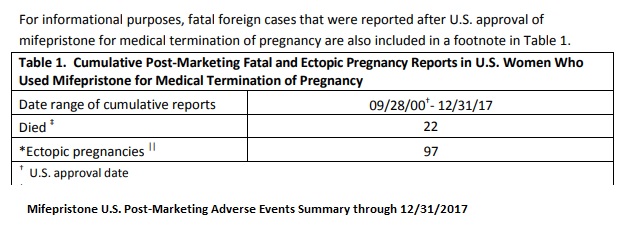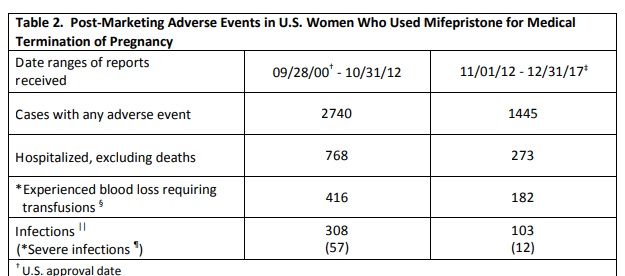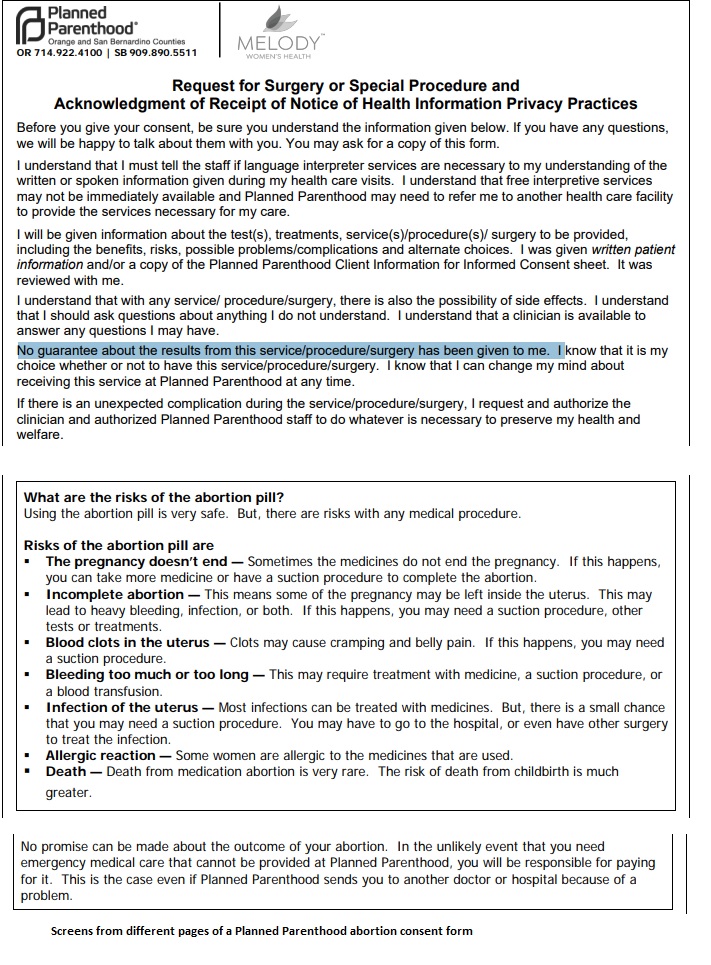Live Action News has been monitoring potential changes in the way the abortion pill could be dispensed in the future, and there is cause for immediate concern. The changes, should the Food and Drug Administration (FDA) allow them, could mean that the drugs would become accessible to anyone via mail order, pharmacy distribution, and possibly online. Not only would this change expand early abortions, but it could also dramatically affect what limited tracking of abortion statistics and complications/deaths are reported.
Currently, under FDA’s approved safety system, REMS (Risk Evaluation and Mitigation Strategy), the abortion pill can only be ordered, prescribed, and dispensed by — or under the supervision of — a hospital or clinic healthcare provider who meets certain qualifications, such as the ability to:
- Assess the duration of pregnancy accurately.
- Diagnose ectopic pregnancies.
- Provide surgical intervention in cases of incomplete abortion or severe bleeding.
The abortion pill regimen, which consists of the drugs Mifeprex and Misoprostol, was approved by the FDA on September 28, 2000, for up to 49 days (7 weeks) of pregnancy. In 2016, the FDA approved the pill for an extended time frame of up to 70 days, or 10 weeks.
By the first half of 2001, according to Guttmacher, early medication abortions accounted for just six percent of procedures. By 2014, according to Guttmacher, early medication abortions accounted for 31% of all nonhospital abortions and 45% of abortions before nine weeks’ gestation. The former “special affiliate” of Planned Parenthood estimated 272,400 early medication abortions were provided in nonhospital facilities in 2014. According to the FDA, between 2000 and the end of 2017, an estimated 3.4 million women had used the abortion pill.
Promoting ‘Self-Managed’ Abortion
The abortion lobby is attempting to expand access to the abortion pills via mail order or pharmacy by pushing “self-managed abortion,” described by Guttmacher as ending a pregnancy “w/o direct supervision by a health care provider.” To accomplish this, REMS, which, according to the FDA is “a safety strategy to manage a known or potential serious risk associated with a medicine and to enable patients to have continued access to such medicines by managing their safe use,” must be eliminated.
To that end, the abortion industry is conducting clinical trials, due to be completed very soon.
1). Direct-To-Consumer (pills sent via mail after TelAbortion or Telemedicine interview)
- “After consulting with an abortion provider by videoconference, qualifying participants are sent the necessary abortion medicines by mail.”
- Patient does not have to travel to abortion facility
- Abortion provider conducts video evaluation over Internet
- Tests done at medical facilities near patient’s home
- Abortion pills then sent by mail
- Planned Parenthood taking part in study
- Sponsored by Gynuity Health Projects
- Gynuity’s principal investigator, Dr. Elizabeth Raymond, told the New York Times that if the study shows telemedicine and mail approach works, it could encourage the FDA to stop restrictions on mifepristone.
- Due to complete June 2019
- “Women participating in this study will obtain mifepristone and misoprostol from the pharmacy instead of in the clinic.”
- Could result in abortion pills by prescription at universities and schools as well as numerous medical offices
- Sponsored by University of California San Francisco with abortionist/researcher Dr. Daniel Grossman as contact
- Grossman authored study of OBGYN attitudes on abortion published in Journal Obstetrics & Gynecology, and claimed that “among OB-GYNs whose patients have asked for an abortion but who do not now offer it, 28 percent said they would offer the drugs if the FDA lifted its most onerous restrictions on their use.”
- Due to complete July 2019
- For participants who are “not currently pregnant and not desiring to be pregnant in the next year.”
- Live Action News previously detailed this study.
- Sponsored by the University of California, San Francisco (UCSF)
- Contact includes (again) abortionist Daniel Grossman
- Due to complete April 2020
In addition to the clinical trials, the ACLU is filing lawsuits to attempt to force the FDA to remove Mifeprex from REMS.
Although abortion advocates will claim that the abortion pill is safe, a 2015 study of abortion safety in California — based on comprehensive and reliable data from Medicaid billing records rather than surveys — found that medication abortions resulted in four times the complication rate of first-trimester surgical abortions, according to a review of the data published by National Review Online. Professor Michael New and Donna Harrison, MD, write, “Given that chemical abortions are already riskier than early surgical abortions, it stands to reason that performing medical abortions without physician supervision only increases those risks.”
In 2018, NPR spoke with Dr. Donna Harrison, a board-certified obstetrician and gynecologist, and executive director of the American Association of Pro-life Obstetricians and Gynecologists (AAPLOG), who noted, “[D]ata on complications from abortion is incomplete because doctors and patients don’t always report it accurately, or at all.”
“There is no good data collection — and when you have garbage in, and you have garbage out,” Dr. Harrison stated.
Currently, according to the FDA, as of December 31, 2017, there have been reports of 22 deaths associated with the abortion pill regimen and several cases of severe systemic infection (also called sepsis), including some that were fatal.
READ: Cecile Richards claims abortion pill ‘safer than Tylenol.’ She’s very wrong.

RU486 abortion pill deaths updated 2017
In addition to deaths, between 2000 and 2012, numerous serious complications were also reported:
- Cases with any adverse event – 2740 (average 228/yr)
- Hospitalized, excluding deaths – 768 (average 64/yr)
- Experienced blood loss requiring transfusions – 416 (average 35/yr)
- Infections – 308 (average 26/yr)

RU486 abortion pill serious adverse effects updated 2017
Within the past five years (between 2012 and 2017) complication reports from the abortion pill have remained steady:
- Cases with any adverse event – 1445 (average 289/yr)
- Hospitalized, excluding deaths – 273 (average 55/yr)
- Experienced blood loss requiring transfusions – 182 (average 36/yr)
- Infections – 103 (average 21/yr)
In one state alone — Ohio — complications from the abortion pill have increased an astronomical 87 percent since 2014.
Planned Parenthood and the abortion industry present abortion as “safe and simple,” but one look at the forms they require women to sign reveals the real truth. Missed abortion, blood clots, infection and even death are among the risks associated with medication abortion.

In part two, Live Action News will further detail conflicts within organizations pushing these changes — specifically the funding of a large investor of the pill’s manufacturer.
Editor’s Note: FDA has received reports of serious adverse events in women who took mifepristone. As of June 30, 2021, there were reports of 26 deaths of women associated with mifepristone since the product was approved in September 2000, including two cases of ectopic pregnancy (a pregnancy located outside the womb, such as in the fallopian tubes) resulting in death; and several cases of severe systemic infection (also called sepsis), including some that were fatal. The adverse events cannot with certainty be causally attributed to mifepristone because of concurrent use of other drugs, other medical or surgical treatments, co-existing medical conditions, and information gaps about patient health status and clinical management of the patient. A summary report of adverse events that reflects data through June 30, 2021 is here.
“Like” Live Action News on Facebook for more pro-life news and commentary!







